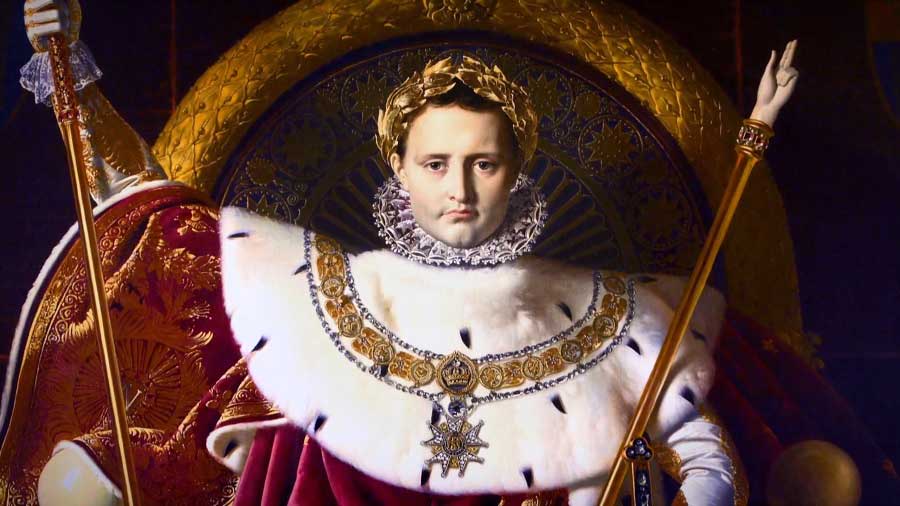Napoleon episode 2: This episode of the series charts the transformation of a political leader of the French to emperor and global statesman, from a son of the French Revolution to husband of the daughter of the Holy Roman Emperor, the most powerful, conservative, monarchist nation on earth.
In 1805, when Napoleon was crowned King of Italy, he was at the height of his power – the previous year, he had been crowned Emperor of the French.
It features the Battle of Austerlitz, one of the greatest military encounters of the 19th century, the rise of a Napoleonic Empire – at its peak numbered over 40 million people – and the supreme meritocracy that was the Napoleonic regime, but it also the compromises that Napoleon had to make to guarantee his global power, compromises that relied upon his trusting nature, a personality trait that in later years would prove to be an Achilles heel to his power. The film is presented by British historian Andrew Roberts, and shot on location in St Helena, France, Czech Republic and Russia.
Napoleon episode 2
Napoléon Bonaparte (15 August 1769 – 5 May 1821) was a French statesman and military leader who rose to prominence during the French Revolution and led several successful campaigns during the French Revolutionary Wars. He was Emperor of the French as Napoleon I from 1804 until 1814 and again briefly in 1815 during the Hundred Days.
Napoleon dominated European and global affairs for more than a decade while leading France against a series of coalitions in the Napoleonic Wars. He won most of these wars and the vast majority of his battles, building a large empire that ruled over much of continental Europe before its final collapse in 1815. He is considered one of the greatest commanders in history, and his wars and campaigns are studied at military schools worldwide. Napoleon’s political and cultural legacy has endured as one of the most celebrated and controversial leaders in human history.
Battle of Austerlitz
The Battle of Austerlitz (2 December 1805), also known as the Battle of the Three Emperors, was one of the most important and decisive engagements of the Napoleonic Wars. In what is widely regarded as the greatest victory achieved by Napoleon, the Grande Armée of France defeated a larger Russian and Austrian army led by Emperor Alexander I and Holy Roman Emperor Francis II.
The battle occurred near the town of Austerlitz in the Austrian Empire (modern-day Slavkov u Brna in the Czech Republic). Austerlitz brought the War of the Third Coalition to a rapid end, with the Treaty of Pressburg signed by the Austrians later in the month. The battle is often cited as a tactical masterpiece, in the same league as other historic engagements like Cannae or Gaugamela.




